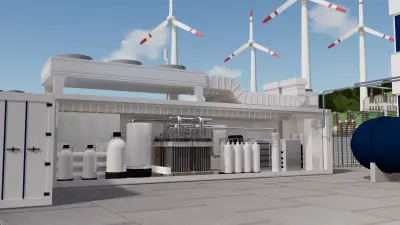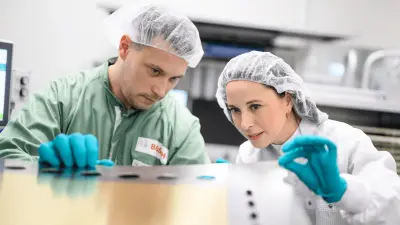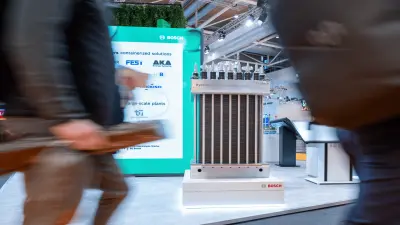Hybrion PEM Electrolysis Stack: powerhouse and all-rounder for a wide range of applications
Users set up hydrogen production facilities with our Hybrion PEM electrolysis stacks. Possible uses range from mobile, decentralized electrolyzers for covering a plant’s own needs to centralized, large-scale industrial solutions with outputs of several hundred megawatts.

Loading the video requires your consent. If you agree by clicking on the Play icon, the video will load and data will be transmitted to Google as well as information will be accessed and stored by Google on your device. Google may be able to link these data or information with existing data.
Your reliable technology partner – Hybrion PEM Electrolysis Stacks by Bosch for scaling your hydrogen production
We are the perfect partner for any user who wants to scale their production successfully in the hydrogen market. Backed by years of experience, we prioritize top quality and efficiency – this is part of our Bosch DNA.
With our expertise in digitalization and connectivity, we offer a range of services: from technical consulting to remote monitoring and recycling of stacks at the end of their life cycle. A key element of these services is the digital twin – a virtual replica of the Hybrion PEM electrolysis stack that enables precise stack analysis, optimizes performance, and reduces operational costs.
The comissioning of Bosch Hybrion PEM electrolysis stacks for customers starts in 2025. All technical specifications given are development objectives and refer to the beginning of life.




